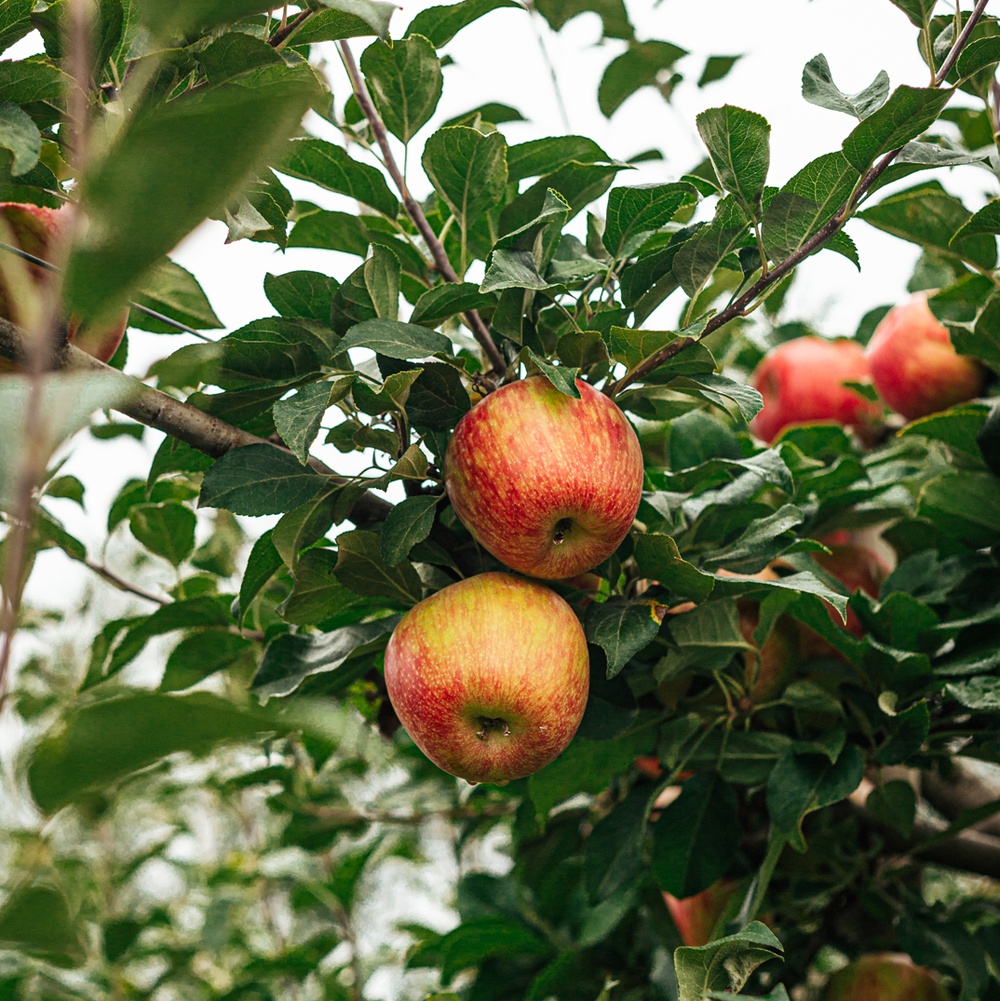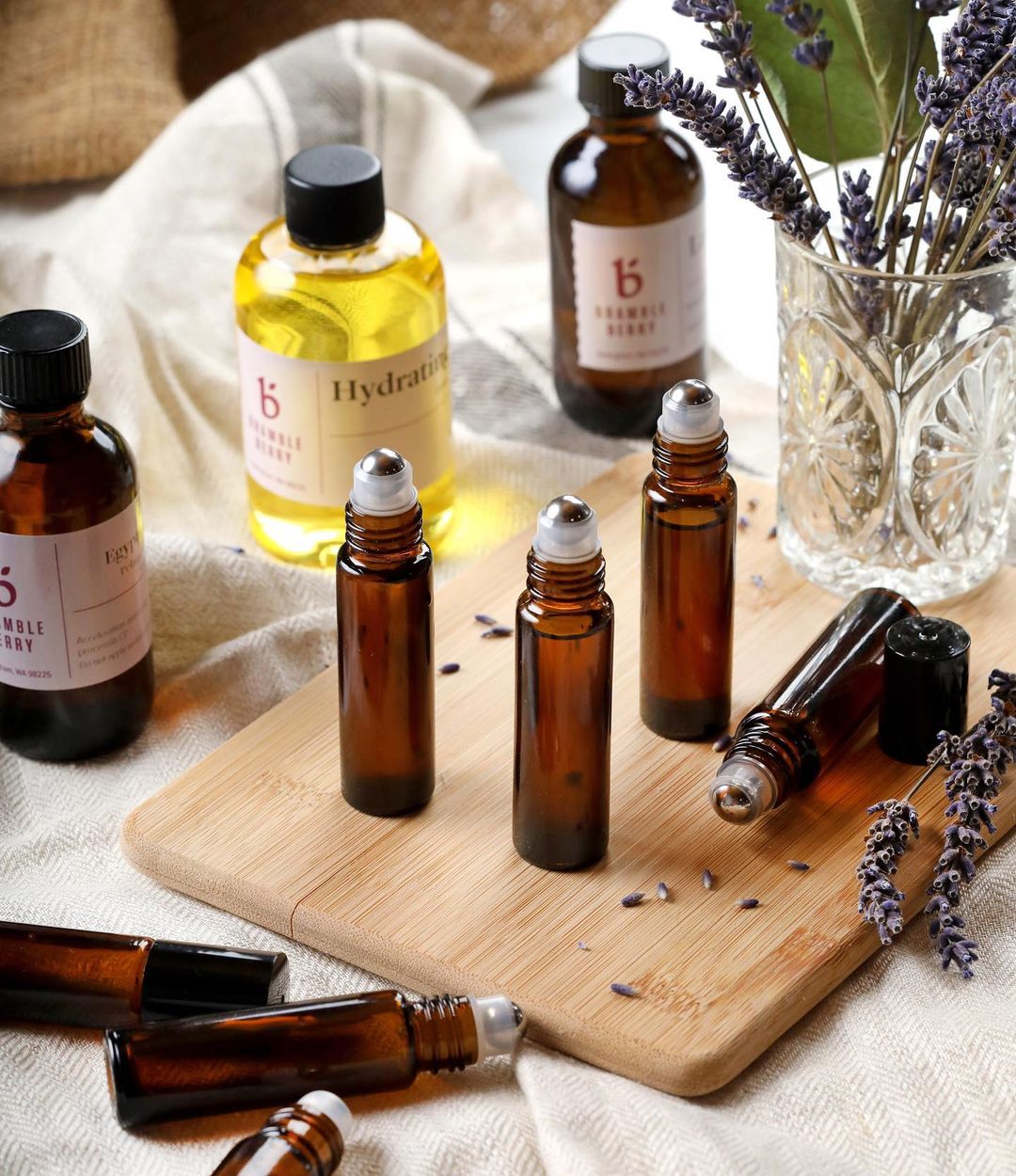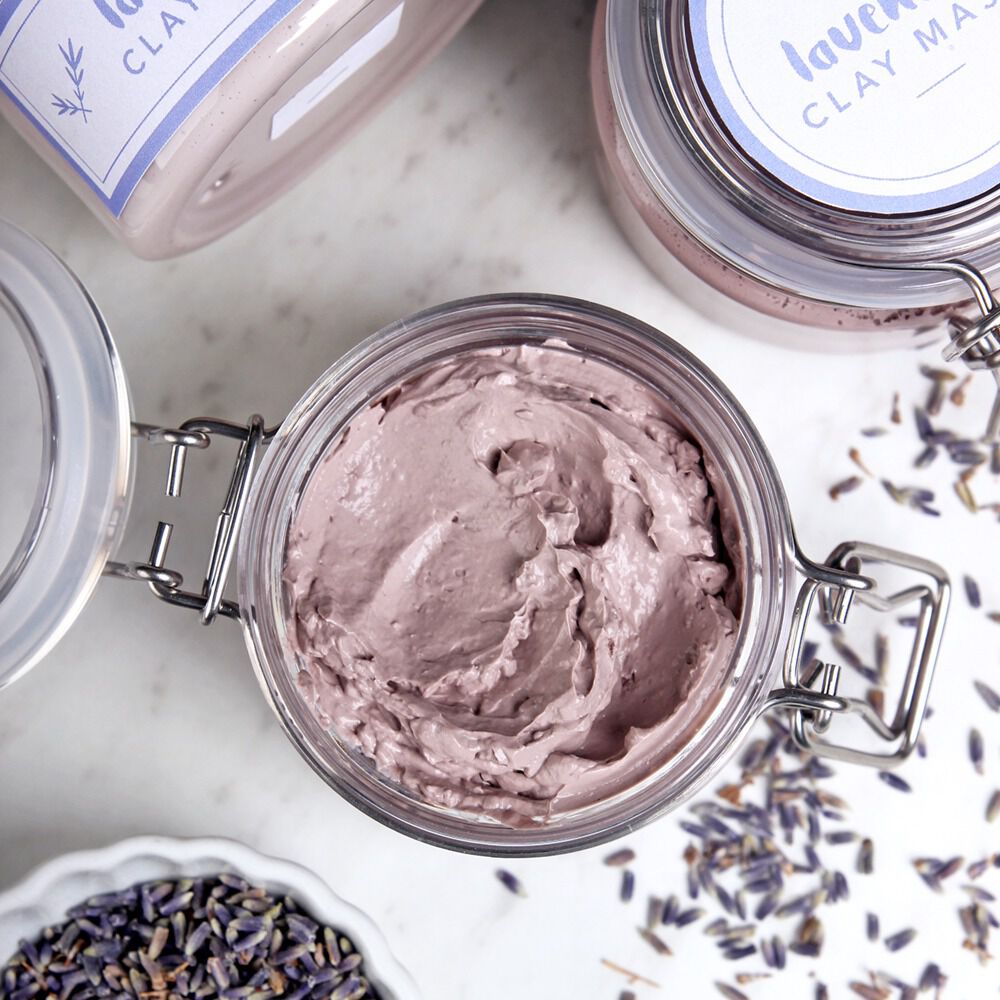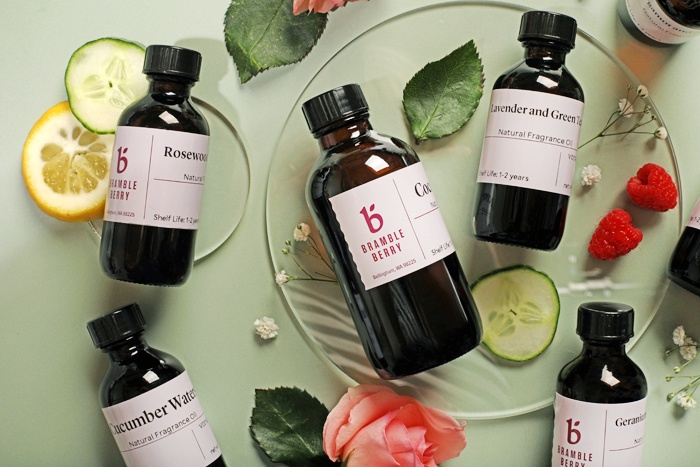It's so important for makers to have options. You need to know where ingredients come from and how they perform, so you can choose exactly what you want on your skin.
That's why we're so excited to introduce our natural fragrance oil line! They're made from plants, but they offer more scent variety than essential oils.
They may just be the perfect option for you. Learn more about natural fragrances below.

How natural fragrance oils are made
They come from natural sources like cucumber, raspberry, and lavender - but how they're made is unique.
Plants are made up of multiple aromatic components. For instance, let's look at Bulgarian lavender. Some of its major components are linalyl acetate, linalool, b-caryophyllene, and terpinen-4-ol. All together, they give lavender its signature floral scent.
To make a natural fragrance oil, one of those would be isolated from the plant. These single aromatic chemicals are called isolates. They're ISO 9235, meaning they're designated as natural by the International Organization for Standardization.
Next, that isolate would be blended with others from a variety of different plants. Linalyl acetate from lavender, which has a floral and citrusy scent, could be blended with ethyl acetate from orange, which smells sweet and fruity. These can also be blended with essential oils.
This process has several advantages. Because natural fragrance oils are made up of multiple components from different plants, they smell complex and can be more interesting than a single essential oil. They're also more consistent because they're not as affected by batch variation.
There are also more natural options to choose from. Certain things, like vanilla and strawberry, don't produce essential oils. However, they are made up of components that can be isolated. That means you can enjoy a crisp apple scent that's all natural.

However, natural fragrance oils do not work in hot or cold process soap. Some perform well, but in our tests all of the scents faded as they cured. We recommend them for everything else though, especially skincare like serums and masks. That's where they really shine.
Natural fragrance oils, fragrance oils, essential oils - what's the difference?
There are some important distinctions between these three, as well as unique pros and cons.
Essential oils
These come from natural sources as well. They’re extracted from plants, herbs, and flowers, often using steam distillation. That process involves heating the components until gas is released, then condensing that gas back into a liquid. It’s a gentle process, which means the sensitive compounds don’t degrade.
Unlike natural fragrances, essential oils use every aroma component of the plant. That results in a pure and fresh scent many people love. You can also create your own unique blends with other essential oils.
You can use them in cold process soap, although the lighter citrus oils tend to fade.
As noted above, there are fewer options because certain plants don't have essential oils. There will also be natural batch variation.
Fragrance oils
Fragrance oils are synthetic. They’re made with a mix of aroma chemicals and natural ingredients like extracts, essential oils, and resins.

Just one fragrance oil can be made up of 40-80 materials, which means you get complex blends that can't always be replicated in nature. They also work well in all projects, including cold and hot process soap.
However, even though they may contain plant-based components, they are still considered synthetic and cannot be listed as natural on a label.
How to use natural fragrance oils
They're perfect for skincare projects like masks, scrubs, serums, and moisturizers. Again, they're not recommended for cold or hot process soap.
Find out how much to use in your recipe with our Fragrance Calculator. For facial products, we recommend using the light or medium recommendation. The scent will be right by your nose, so less is more in this case.
A scale works best for measuring out the grams or ounces. You can also use droppers for smaller recipes.
If you plan to sell your products, you can put "natural fragrance" or "natural fragrance oil" on the label.
Find skincare projects made with natural fragrance oils here!

Our natural fragrance oils
Just as with all of our fragrance oils, we test all of our natural fragrance oils for performance and quality. We want you to have the fragrance that works best for you and your DIY project. While we don't recommend natural fragrance oils for cold process soap (many of them are well-behaved in soap making, but fade away to nothing during the curing process), we absolutely love them in skincare and body care products, bath bombs, and even candles.
Check out our whole collection of natural fragrance oils and find your new favorite scent.

You can check out all of our natural fragrance oils and find your new favorite scent.

